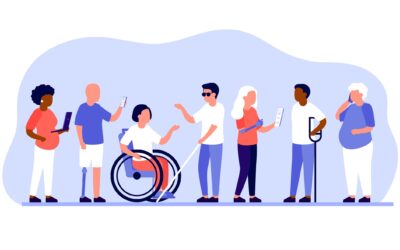4 things HR professionals learned from open enrollment
Open enrollment is always challenging. But it was a whole new ball game in 2020. With Covid-19 forcing social distancing, a lot of things had to change from previous years.
WEX conducted a survey of employers to learn what changed. About 67 percent said they changed their open enrollment education. Many added virtual engagement with employees and about 85 percent said they would continue to do so in the future.
Here are four things HR professionals said they learned from having to adapt to a new open enrollment season.
1 – Virtual Open Enrollment fairs were a success
WEX found that most companies who conducted an open enrollment fair in 2020 will do so in the future, even if social distancing guidelines are not in place.
The open enrollment fairs were easier to host and more effective than traditional fairs. Further, companies said they were able to reach and engage with employees, though it wasn’t the same as it was with previous fairs when people could talk in-person. Some companies said they would create a hybrid model to do both virtual and in-person events.
2 – Time is of the essence
While virtual open enrollment fairs were a success, they also took much longer to prepare compared to previous years. Companies told WEX they wished they started the preparation sooner.
There were several reasons for this. Every company was dealing with the Covid-19 impact. There were new technologies to learn. Many companies took a self-service approach, which took time to set up because of the details involved. Plus, many felt they should start communicating about open enrollment earlier.
3 – Open enrollment will get more personal and interactive
Employers are saying they need better tools to help employees during open enrollment. For example, it would be great if they could chat and answer employees’ questions in real-time. Other suggestions include using gamification and a benefits calculator.
4 – Make open enrollment mandatory
Employers want to make sure employees get everything they need to make the best choices for benefits. One way to do that is to have them come to an open enrollment meeting. In 2020, those meetings took place via video conferencing. To get people to attend these meetings, they gave out gift cards to compensate and incentivize them to go. They even leveraged senior management and made them the face of the process.
Companies will be setting up a new round of benefits options soon. As HR teams review what options are out there, commuter benefits are one perk that will help employees along with flex spending accounts and other important benefits. As companies bring employees back to the office full time or move to a hybrid option, people will have to commute. Commuter benefits will help employees save money tax-free in their paycheck.
For more information on what’s available for commuter benefits, visit www.commuterbenefits.com.
A Comprehensive Guide to Ensuring Accessibility for Employees with Disabilities
Improve Workplace Accessibility by Offering Inclusive Benefits Ensuring your business is accessible to employees with disabilities is not only a...







